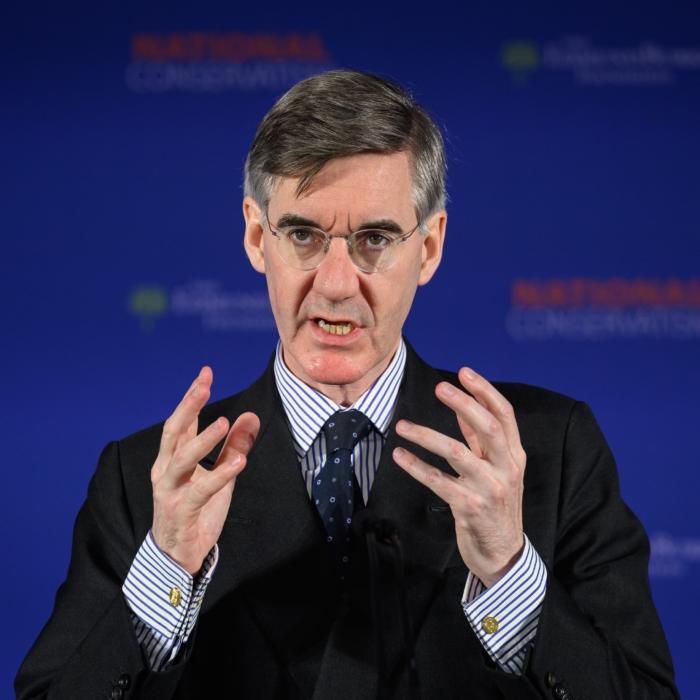The media watchdog has warned broadcasters about the rules on impartiality in the run-up to a general election as it published research that suggested viewers were often unable to distinguish between news and discussion of current affairs.
Ofcom commissioned pollsters Ipsos to “help them understand audience attitudes towards politicians presenting programmes.”
It follows a series of adjudications against GB News, which has been accused of breaking impartiality rules in broadcasting.
The episodes were presented by Esther McVey and Philip Davies, two Conservative MPs who are also married, and the former leader of the House of Commons, Sir Jacob Rees-Mogg.
Ms. McVey and Mr. Davies are no longer GB News presenters.
Under Rules 5.1 and 5.3 of the Broadcasting Code, news in whatever form must be presented with due impartiality and a politician cannot be a newsreader, news interviewer, or news reporter unless, exceptionally, there is editorial justification.
GB News said of Ofcom’s ruling last month it was “a chilling development for all broadcasters, for freedom of speech, and for everyone in the United Kingdom.”
Candidates Prohibited From Acting as News Presenters
In a statement it said, “Broadcasters are reminded that Rule 6.6 of the Code prohibits candidates in UK elections from acting as news presenters, interviewers or presenters of any type of programme during the election period.”The report said many viewers found “it was more straightforward to distinguish between news and current affairs on radio than on television.”
When it came to television, the report said, “Participants [of the focus groups] thought current affairs content that included ’typical' news visuals such as a rolling banner, a branded or official backdrop (e.g. a political building, skyline or newsroom), and a presenter sitting behind a desk, could confuse viewers into thinking it was the news.”
‘The News Is Quite Dull’
One of the focus group participants, a man in his late 50s, said: “I do enjoy TalkTV and GB News in the evening. The presenters draw you in and pique your interest. [One politician] is a kind of Marmite character. I find them and their guests quite entertaining. The news is quite dull. If you want to be entertained, those are the places I go to.”Ofcom said the report would help “inform its decisions about any future complaints regarding politicians presenting programmes on TV and radio, while having full regard to broadcasters’ and audiences’ rights to freedom of expression, including audiences’ right to receive information and ideas without unnecessary interference.”
Earlier this week the former chairman of GB News, Andrew Neil, said Ofcom needed to “grow a backbone and quick” over the issue of politicians hosting TV programmes.
He told the House of Lords, “I am surprised that any regulator would allow politicians sitting in the Houses of Parliament to present political TV programmes.”
MP: Ofcom ‘Won’t Be Taken Seriously by Rogue Broadcasters’
On Wednesday, SNP MP John Nicholson, a former journalist and broadcaster, wrote on social media platform X, “The toothless Ofcom response to multiple GB News breaches following inexplicably long investigations into glaringly obvious breaches suggests that the regulator won’t be taken seriously by rogue broadcasters.”Ofcom said, “With a general election due to take place before 25 January 2025, we are sounding a warning to broadcasters to maintain the highest level of due impartiality, in line with our enhanced rules that apply during election periods.”
“Any breaches of election programming rules are likely to be serious and to result in Ofcom considering the imposition of statutory sanctions,” it added.







